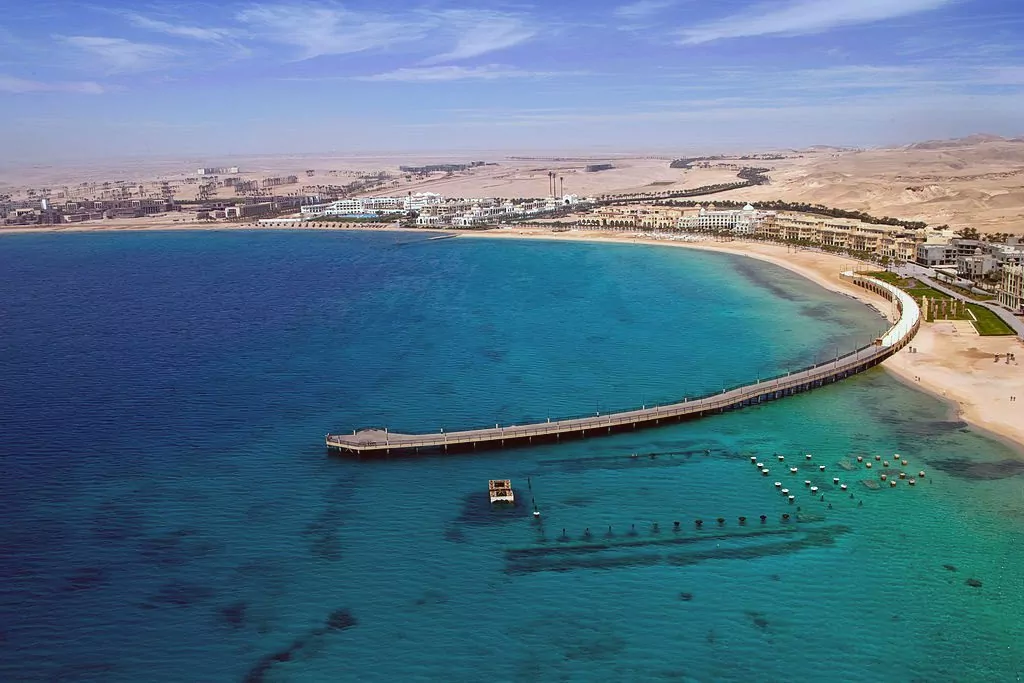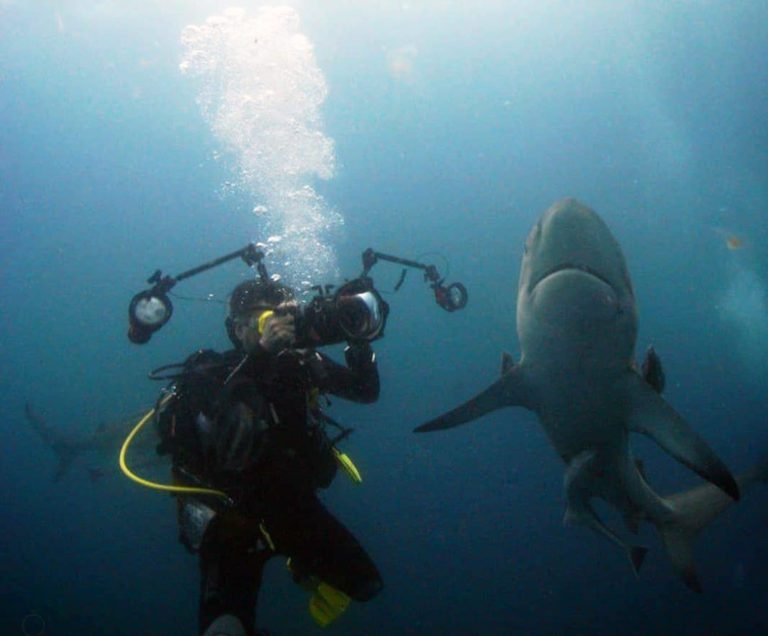The killer of two female swimmers off the Egyptian coast south of Hurghada recently was a female tiger shark – according to the findings in an eight-page report issued by a committee of the Hurghada Environmental Protection & Conservation Association (HEPCA).
Its conclusion comes from what are described as clear signs of bite-marks on the bodies of the two women. Experts had originally attributed the attacks to a mako shark.
The committee says in its report that the attacks occurred because it was the sharks’ mating season, and that this had made the females more aggressive than usual as they were drawn into shallow waters.
But it also gives an additional explanation in the form of the presence of food waste, dropped into the sea by boats and hotels, and animal carcasses discarded by cargo ships.
“This is a typical explanation given by Egyptian authorities when such incidents have occurred in the past, and while it is likely enough it is also an over-simplification,” says shark conservationist and scuba diver Ekrem Parmaksiz, who obtained a copy of the report for Divernet.
“I have been diving in the Red Sea for more than 13 years, and have come across beautiful tiger sharks off Rocky Island and Elphinstone reefs on two occasions. I must confess that the recent incidents, the way they took place and the identification of the culprit as a female tiger shark took me by surprise, because tiger shark attacks have been exceedingly rare off Egypt’s Red Sea coasts,” he says.

“We all know about the tragic oceanic whitetip shark incidents over the past 10 years but tiger shark attacks in the shallow coastal waters off Hurghada are rare. While it is true that these species begin to enter shallow waters during the mating season, it is normally male tiger sharks that are the aggressive ones, usually after mating has just concluded.
“The females’ mood does not usually become aggressive. So laying the blame with such certainty on a female tiger shark and indicating the mating season, which lasts from mid-April to the end of July, as well as pointing to discarded food, seems to me to be a premature conclusion.”
Strange behaviour
In 2019 Parmaksiz wrote a research article, published in Diver magazine, about behavioural changes in oceanic whitetip sharks as a result of shifting Red Sea temperatures.
“I claimed that rising water temperatures caused the sharks’ sudden mood shifts and caused them to zig-zag vertically before attacks. Sharks need to maintain their internal temperature within a desirable range to perform at their optimum level, and behavioural thermo-regulation is an important feature in the movement of these magnificent animals. Abrupt changes in the temperature of surrounding water can make them more aggressive.
“More accidents have been taking place in the Red Sea in recent years if we take this factor into consideration. I believe that it is not only discarded food, animal carcasses and overfishing but also climate change that is to blame for unpredictable shark behaviour.”
The HEPCA report recommends urgent long-term measures to prevent future shark attacks, including an extended ban on fishing activities.
The victims
The deaths of the two women in the bay at Sahl Hasheesh on 1 July were reported on Divernet, and one of the victims has since been named. She was 68-year-old Austrian snorkeller Elisabeth Sauer, a councillor for the country’s Green Party who had been spending the last part of a month in the area with her Egyptian partner.
The other victim, from Romania, was reported to have been a tourist staying at the nearby Premiere Le Reve hotel. She died as the result of shark bites less than 200m from where Sauer was attacked, although guests at her hotel later claimed that she had not been seen for the previous two days, so might have been the first victim.

Other witnesses reported that beach lifeguards had laughed off warnings about sharks in the water minutes before the death of Sauer, although this is unconfirmed.
Two weeks after the two deaths, limited diving and snorkelling activities have now resumed in the coastal area that extends from north of Dasha al-Dabaa to Ras Abu Soma in the south. The Red Sea governorate lifted its blanket ban last weekend (16 July).
Entry-level diver training is still not allowed because it can be undertaken only in sandy areas away from coral reefs, according to Egypt Independent, and solo snorkelling remains prohibited at coral-reef sites, and can be carried out only in groups and supervised by a licensed snorkelling guide.
Water sports other than banana boating are allowed but swimmers are expected to stay in depths of no more than 2m at lifeguard-supervised beaches. Fishing bans remain in place.
Death in Dunbar
Meanwhile, a man reported to have been an experienced commercial diver has died while swimming off a beach in Scotland.
The 48-year-old Edinburgh resident had been wearing a wetsuit and was with his brother at Tyninghame beach near Dunbar in East Lothian at around 4.20pm on Saturday 16 July when he got into difficulties.
Emergency services were called but the man was pronounced dead. Police said that an investigation would be carried out and a report was sent to the Procurator Fiscal.
Also on Divernet: Dangerous Moonlight Linked To Shark Attacks, Tiger Shark Didn’t Kill Red Sea Diver

